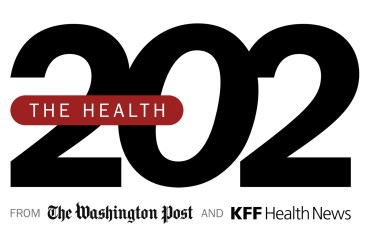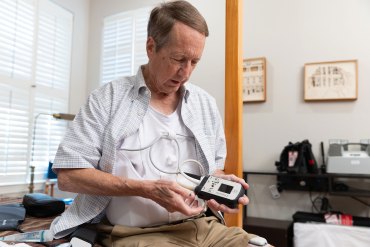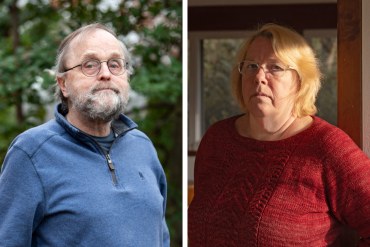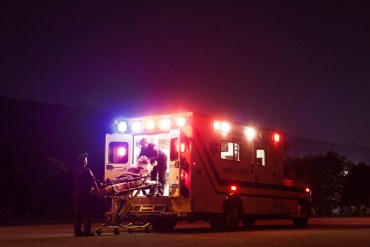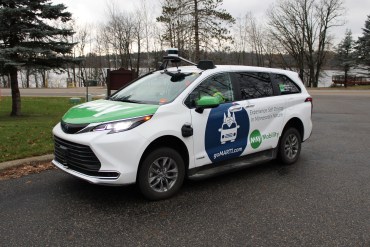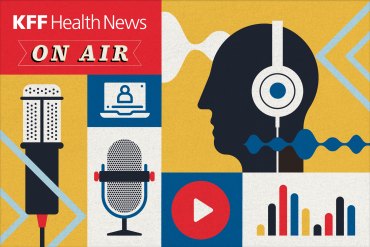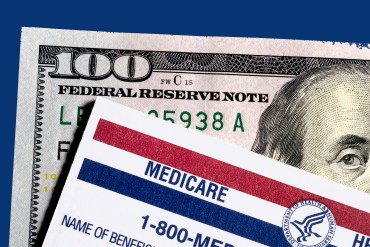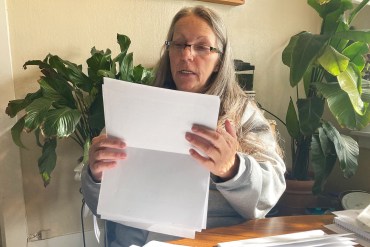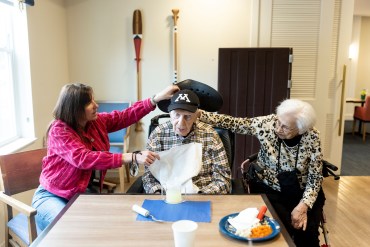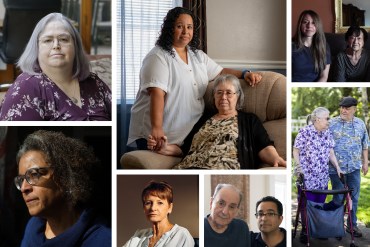What a Bison Goring Can Teach Us About Rural Emergency Care
Millions of Americans live in “ambulance deserts” — areas that are more than a 25-minute drive to the nearest emergency medical services (EMS) station. The most rural areas can be more than an hour away from help. These sparsely populated communities can have trouble sustaining ambulance services, if small patient volumes and low reimbursements […]
Patients Facing Death Are Opting for a Lifesaving Heart Device — But at What Risk?
The HeartMate 3 is considered the safest mechanical heart pump of its kind, but a federal database contains more than 4,500 reports in which the medical device may have caused or contributed to a patient’s death.
‘They See a Cash Cow’: Corporations Could Consume $50 Billion of Opioid Settlements
As opioid settlement dollars land in government coffers, a swarm of businesses are positioning themselves to profit from the windfall. But will their potential gains come at the expense of the settlements’ intended purpose — to remediate the effects of the opioid epidemic?
‘Financial Ruin Is Baked Into the System’: Readers on the Costs of Long-Term Care
Thousands of people shared their experiences and related to the financial drain on families portrayed in the “Dying Broke” series, a joint project by KFF Health News and The New York Times that examined the costs of long-term care.
As Foundation for ‘Excited Delirium’ Diagnosis Cracks, Fallout Spreads
Major policy changes and disavowals have made this a watershed year for curbing the use of the discredited “excited delirium” diagnosis to explain deaths in police custody. Now the ripple effects are spreading across the country into court cases, state legislation, and police training classes.
People With Disabilities Hope Autonomous Vehicles Deliver Independence
A pilot project in northern Minnesota aims to pave the way for fully autonomous vehicles to offer independence for people who can’t drive.
Journalists Delve Into Gun Violence, Medicaid’s ‘Unwinding,’ Opioid Lawsuits, and More
KFF Health News and California Healthline staffers made the rounds on national and local media this week to discuss their stories. Here’s a collection of their appearances.
Dodging the Medicare Enrollment Deadline Can Be Costly
As open enrollment ends, many people are tuning out. They could wind up with a surprise next year: higher costs and less access to health care providers.
Food Sovereignty Movement Sprouts as Bison Return to Indigenous Communities
Native American leaders see bison herds and ancestral gardens as ways to bring healthy eating to their people.
Grassroots College Networks Distribute Emergency Contraceptives on Campus
Peer-to-peer efforts can meet a clear need among students whose colleges may not make sexual health products accessible or affordable.
Many People of Color Worry Good Health Care Is Tied to Their Appearance
Many people from racial and ethnic minority groups brace themselves for insults and judgments before medical appointments, according to a new survey of patients that reaffirms the prevalence of racial discrimination in the U.S. health system.
Doctors on (Video) Call: Rural Medics Get Long-Distance Help in Treating Man Gored by Bison
A rural South Dakota medic said using an ambulance video system to communicate with a doctor gave him peace of mind as he treated a patient who was seriously injured when gored by a bison.
‘Forever Chemicals’ Found in Freshwater Fish, Yet Most States Don’t Warn Residents
At least 17 states have issued PFAS-related fish consumption advisories, KFF Health News found. But with no federal guidance, what is considered safe to eat varies significantly among states, most of which provide no regulation.
Uncle Sam Wants You … to Help Stop Insurers’ Bogus Medicare Advantage Sales Tactics
The Biden administration wants to crack down on deceptive or misleading Medicare Advantage and drug plan sales tactics. It’s counting on beneficiaries to help catch offenders.
Medicaid ‘Unwinding’ Makes Other Public Assistance Harder to Get
The bottleneck caused by states’ reevaluation of Medicaid enrollees has swept up low-income families that rely on other safety-net services.
‘Forever Chemicals’ in Thousands of Private Wells Near Military Sites, Study Finds
New research finds that private wells near more than 82% of select military sites were contaminated with PFAS chemicals.
Extra Fees Drive Assisted Living Profits
The add-ons pile up: $93 for medications, $50 for cable TV. Prices soar as the industry leaves no service unbilled, out of reach for many families.
New Social Security Report Shows Growing Overpayment Problem Tops $23B
Social Security has been overpaying recipients for years, then demanding the money back, leaving people with bills for up to tens of thousands of dollars or more.
Most States Ban Shackling Pregnant Women in Custody, Yet Many Report Being Restrained
Advocates for pregnant people in police custody say repeated incidents show prohibitions on handcuffs and other restraints are little more than lip service.
Adult Children Discuss the Trials of Caring for Their Aging Parents
The financial and emotional toll of providing and paying for long-term care is wreaking havoc on the lives of millions of Americans. Read about how a few families are navigating the challenges, in their own words.




